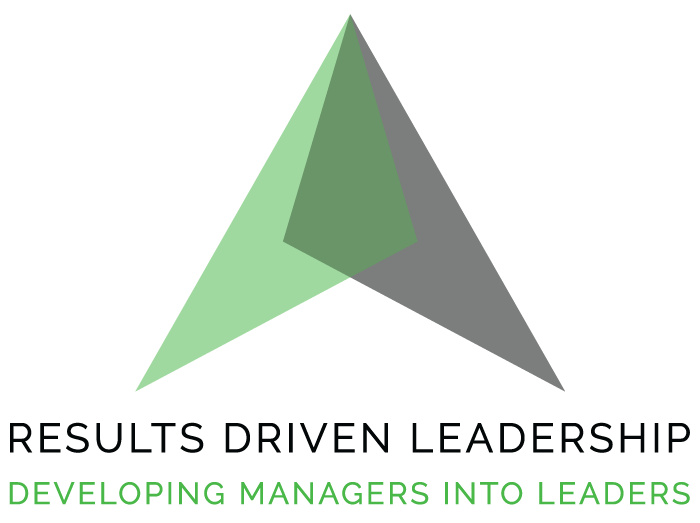TABLE OF CONTENTS
For many individuals, especially those identifying as introverts or those with a High C DISC profile, assertiveness can sometimes seem like a challenging trait to cultivate.
The good news is that assertiveness, like any skill, can be developed and honed over time. Let’s delve into how individuals with these personality traits can become more assertive without compromising their true selves.
![Personalities-[Converted]](https://rdltraining.com/wp-content/uploads/2023/08/Personalities-Converted.jpg)
1. Understanding the High C DISC Profile & Introversion:
- Introverts typically gain energy from spending time alone or with a small group of close friends. They often prefer deep, meaningful conversations and may find too much social interaction draining.
- Individuals with a High C DISC profile are characterized by their conscientiousness, precision, structure, and analytical abilities. They thrive on information, accuracy, and being systematic in their approach.
2. Distinguish Between Being Passive, Assertive, and Aggressive:
- Passive behavior involves avoiding conflict, not expressing one’s feelings or opinions, and allowing others to make decisions.
- Assertive behavior is characterized by confidently expressing one’s opinions, feelings, and needs in a way that respects the rights and feelings of others
Aggressive behavior involves expressing oneself in a dominating and disrespectful manner. - It’s crucial to aim for assertiveness as the balanced middle ground.
3. Tips for Developing Assertiveness:
- Start Small: If you’re uncomfortable with confrontation, begin with small situations. Practice stating your preferences or setting boundaries in low-stakes settings.
- Develop Self-awareness: Understand your feelings, needs, and rights. This can be achieved through self-reflection, journaling, or mindfulness practices.
- Use “I” Statements: Instead of saying “You always…”, say “I feel…” or “I think…”. This centers the conversation around your feelings or opinions without placing blame.
- Practice Active Listening: Ensure you understand others by repeating back what you’ve heard and asking clarifying questions.
- Prepare Ahead of Time: If you have an important conversation coming up, script out your main points. This can give you confidence and ensure you don’t forget any crucial details.
- Seek Feedback: After a conversation, ask a trusted friend or colleague for feedback. They might offer insights on how you could have been more assertive or areas where you did well.
- Set Boundaries: Clearly define your limits. If you’re uncomfortable or unable to do something, communicate this firmly but respectfully.
- Embrace No: Learn the art of saying no. Remember, declining a request is a right everyone has, and it doesn’t make you a bad or unhelpful person.
4. Challenges & How to Overcome Them:
- Fear of Conflict: Remember, being assertive doesn’t mean being aggressive. You’re merely standing up for your rights and needs.
- Overthinking: High C profiles might over-analyze situations. In such cases, it might be helpful to set a time limit for decision-making or seek input from others to get a fresh perspective.
- Worrying about Perception: It’s important to understand that you can’t control others’ perceptions. Focus on clear, honest communication and the rest will follow.
5. Continuous Improvement:
- Developing assertiveness is a journey, not a destination. Like any skill, it requires practice, feedback, and reflection. As you face different situations, you’ll continue to learn and grow.

Developing assertiveness is a gradual process involving various skills and techniques. Here are some practical examples to help you on this journey:
Express Your Opinions and Feelings:
Practice Statement: Instead of staying silent during a meeting, say, “I have a suggestion I’d like to share.”
Use “I” Statements:
Practice Saying “No”:
Practice Scenario: If someone asks you to take on an extra task and you’re already overwhelmed, say, “I understand this is important, but I won’t be able to handle this task right now.”
Negotiate or Compromise:
Practice Scenario: When disagreeing on a project approach, you can suggest, “How about we try my approach this time and we can evaluate its effectiveness afterward?”
Request Feedback:
Practice Statement: After presenting in a meeting, ask a colleague, “I’m working on my presentation skills. Do you have any feedback on how I did?”
Be Clear and Specific:
Practice Statement: Instead of saying, “Can you get this done soon?” specify, “Can you please complete this task by 3 pm tomorrow?”
Maintain Eye Contact:
Practice Technique: When in conversation, try to maintain consistent but comfortable eye contact, which can signify confidence and sincerity.
Practice Active Listening:
Practice Technique: When someone is speaking to you, show you’re listening by nodding, giving verbal affirmations like “I understand,” and by restating or paraphrasing what they said to confirm your understanding.
Ask Open-ended Questions:
Practice Statement: Instead of asking a co-worker, “Did you like my idea?” ask, “What are your thoughts on the idea I proposed?”
Remember, becoming more assertive takes time and consistent practice. Celebrate small victories along the way, and seek out supportive environments and individuals who can provide constructive feedback and encouragement.

Open-Ended Questions Matter
For individuals with a High C DISC profile, who are typically analytical, detail-oriented, and systematic, assertiveness can be enhanced by asking open-ended questions that seek clarity, gather information, and show engagement. Here are open-ended questions that a High C individual can employ to assert their viewpoint, gather data, or move a discussion forward:
Project Management & Work Tasks:
“Can you explain the reasoning behind that decision?”
“What metrics or data led us to this conclusion?”
“How do you envision this plan unfolding over the next quarter?”
Feedback & Clarification:
“How can I improve on this task in the future?”
“Can you help me understand the areas where the team feels I can contribute more effectively?”
“What specific steps would you recommend I take next time?”
Collaboration & Team Dynamics:
“What do you think about the approach I’ve suggested?”
“How can we better integrate our processes for more efficiency?”
“What aspects of this project do you believe require immediate attention?”
Decision Making & Problem Solving:
“Can you share your thoughts on the pros and cons of these options?”
“How do you see this action impacting the larger goal or strategy?”
“What potential challenges should we anticipate, and how can we address them proactively?”
Meeting & Discussions:
“Can we delve deeper into the details of that point?”
“How would you prioritize these objectives based on our current resources?”
“What key factors should we consider before finalizing this?”
Setting Boundaries & Managing Expectations:
“What are the critical milestones we should aim for?”
“How do you see my role evolving in this context?”
“What would be the best way for me to provide regular updates or feedback?”
Personal Growth & Professional Development:
“In which areas do you think I can further hone my skills?”
“What opportunities are there for me to take on more analytical or strategic responsibilities?”
“Can you recommend resources or training that might help me in this aspect?”
Conflict Resolution & Handling Disagreements:
“I’m keen to understand your perspective. Can you elaborate on your viewpoint?”
“How can we reconcile our differences in approach to achieve a common goal?”
“What middle ground can we establish to ensure all concerns are addressed?”
Leveraging their natural analytical skills with assertive communication is crucial for a High C profile. These questions allow them to gather necessary information, show their engagement, and take a proactive role in discussions, thereby enhancing their assertiveness in various situations.

How an Introvert Can Talk Less and Be Assertive During a Performance Review
Utilizing open-ended questions, especially in the context of a High C Introvert leading a performance review, has multiple advantages that align perfectly with their innate tendencies and preferences. Let’s delve into how this method enables them to “speak less, discover more, and still be assertive”:
Structured Listening: High C profiles thrive on structure and analysis. Framing the conversation with open-ended questions provides a structured pathway for discussion. This allows them to listen intently, gather detailed information, and analyze responses without needing to dominate the conversation.
Efficiency: Open-ended questions lead to more comprehensive answers. This means the High C Introvert doesn’t have to interject as often or ask numerous follow-up questions, as the respondent often provides a wealth of information in their initial answer.
Assertiveness through Inquiry: Asking well-formulated questions can be just as assertive as making direct statements. For High C Introverts, their assertiveness manifests in the quality and precision of their questions rather than the quantity of their input.
Empowerment of Direct Reports: By posing open-ended questions, leaders empower their direct reports to reflect, analyze, and articulate their experiences and perspectives. This provides valuable insights and fosters a sense of value and trust among team members.
Minimizes Potential for Conflict: Introverts, in general, might prefer to avoid confrontational situations. Open-ended questions create a space for understanding and exploration, reducing the potential for defensiveness or conflict. It turns the review into a collaborative discussion rather than a one-sided critique.
Facilitates Deeper Analysis: High C individuals are detail-oriented. By encouraging their direct reports to share detailed responses, they can gather more data for their analytical processes. This helps in making more informed decisions about performance metrics, growth strategies, and areas of improvement.
Builds Relationship and Trust: Even though a High C Introvert might not be as verbally expressive, showing genuine interest in a direct report’s perspective and experiences can build stronger professional relationships based on mutual respect and understanding.
For a High C Introvert, the adage “quality over quantity” rings true. They might speak less, but the depth and precision of their open-ended questions can lead to richer discussions, more profound insights, and assertive leadership that is both effective and respected.
Conducting a performance review as a High C Introvert means focusing on detailed analysis, consistency, and clear communication. Utilizing open-ended questions can help facilitate a comprehensive dialogue and create an environment where the direct report feels encouraged to share insights, challenges, and aspirations. Here are open-ended questions tailored to the characteristics of a High C Introvert:
Understanding Performance Metrics:
“Can you walk me through your process for achieving the targets set out for you?”
“How do you prioritize your tasks, especially when faced with tight deadlines?”
Identifying Challenges:
“What obstacles or challenges did you face this year and how did you navigate through them?”
“Are there specific tools or resources you feel you’re lacking that could support your performance?”
Gathering Feedback:
“How can our team’s communication and collaboration be enhanced?”
“Do you have feedback on how I can better support you or provide clearer direction?”
Career Development & Future Goals:
“Where do you see yourself in the next year, and what skills or experiences would you like to gain?”
“What professional development opportunities would you be interested in pursuing?”
Understanding Their Perspective:
“How do you feel about the feedback and goals we’ve set previously? Were they clear and attainable?”
“In your opinion, what were your most significant accomplishments this review period?”
Promoting Self-assessment:
“How would you rate your own performance this year, and why?”
“Which areas do you believe you’ve excelled in, and where do you think you could use improvement?”
Exploring Team Dynamics:
“How do you feel about your collaboration with other team members?”
“What suggestions do you have for enhancing the team’s productivity and cohesion?”
Delving into Specific Projects or Tasks:
“Can you provide insights into the strategies you employed for [specific project/task]?”
“Were there lessons or takeaways from [specific project/task] that you’d like to carry forward or avoid in the future?”
Fostering Continuous Improvement:
“Moving forward, what changes or adaptations do you plan on implementing based on our discussions and your reflections?”
“What can we do as a team and organization to better facilitate your growth and success?”
Using these open-ended questions, a High C Introvert can effectively guide the conversation in a structured manner while ensuring the direct report feels valued and understood. The goal is to build a mutual understanding that paves the way for growth, improvement, and success.
Utilizing open-ended questions, especially in the context of a High C Introvert leading a performance review, has multiple advantages that align perfectly with their innate tendencies and preferences. Let’s delve into how this method enables them to “speak less, discover more, and still be assertive”:
In conclusion, while introversion and a High C DISC profile might pose unique challenges in becoming assertive, they also bring strengths like introspection, attention to detail, and a methodical approach. By leveraging these strengths and practicing assertiveness, individuals can effectively communicate, set boundaries, and advocate for themselves in personal and professional settings.





